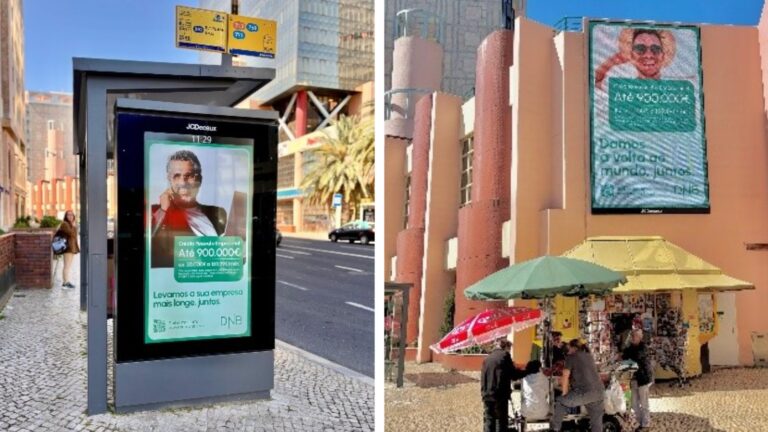Norwegian bank DNB has revealed details of a new and highly creative fraud campaign that used physical advertising posters in Portugal to lure victims into a fake loan scam.
Despite having no presence in the country, DNB’s branding appeared on around 2,300 professionally produced posters placed in public areas across several Portuguese cities.

The posters featured QR codes leading to a fake DNB website, designed to trick people into handing over personal information.
Visitors to the site were offered what appeared to be an attractive loan, but were told they had to pay a fee before receiving any funds—a classic advance-fee scam, dressed up with a slick and convincing design.
“This is a type of ‘physical phishing' that we have not seen before. As in regular phishing, the goal is for you to provide sensitive information that criminals can misuse to get your money,” said Sebastian C. Takle, head of DNB’s Financial Cybercrime Center.
An Advertising Agency Was Also Fooled
The scam was so sophisticated that even the advertising agency involved in producing and distributing the posters was tricked. The agency received the job request through what appeared to be an authentic email from a senior DNB executive.
By the time the fraud was uncovered and the posters were taken down in April and May, they had already been seen by thousands of people on buses, in shopping centres, and on city streets.
The materials closely mimicked DNB’s visual style, including its font, layout, and design elements.
“Be aware of QR code fraud! We may see more of it,” warned Takle.
Fraud Moves Beyond the Internet
Takle said the sheer scale and creativity of this case sets it apart from anything the bank has encountered before.
“The creativity and scope surpass most fraud methods we have seen before, but the trend is clear. Crime now happens both online and in physical forms.”
He pointed to another case from last year, in which fraudsters met elderly victims in person. One victim was even taken to Dubai, where her funds were used to cover hotel stays and buy expensive luxury items.
A growing trend, Takle explained, is that scammers use the names of trusted brands to cast a wide net in the hope that a few people will fall for the deception.
“In Portugal, the size of the posters and the volume contributed to the advertising campaign (read: fraud campaign) appearing very credible. Therefore, it is likely that several have been deceived into giving away sensitive information.”
Organised Crime With Global Reach
Although no similar campaigns have yet been identified elsewhere, DNB is actively investigating whether this kind of fraud could be spreading internationally.
Takle warned that organised crime networks often operate across borders, with the intention of targeting Norwegians at home and abroad.
“Therefore, always be on guard. We may see more of this type of fraud. Here, the advertising agency lost money because they were deceived. How many others have been deceived, we do not know.”
DNB urges everyone to stay alert to increasingly sophisticated scams, both online and offline. As this case shows, even the real world is no longer safe from phishing.

